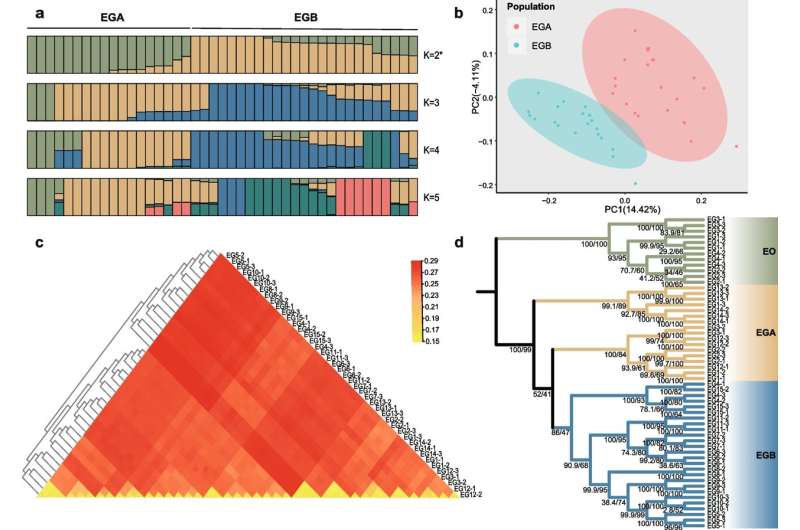
A study has shed light on the genetic makeup of the tea gray geometrid, Ectropis grisescens. Through the re-sequencing of 43 genomes, scientists have mapped out the pest’s population structure and its remarkable adaptation to tea crops, offering new avenues for managing this agricultural adversary.
Amidst the lush tea plantations, a microscopic menace looms—the tea gray geometrid, a pest that can decimate tea yields with its insatiable appetite. The economic and qualitative havoc wreaked by this insect has prompted an urgent call for innovative pest control solutions. However, the genomic secrets of this species have remained largely unexplored, necessitating an in-depth genetic study to unravel its resilience and inform smarter pest management strategies.
Zhejiang University’s research team has taken a monumental step forward with their latest publication in Crop Health on June 1, 2024. The study presents a detailed genomic analysis of the tea gray geometrid, unveiling a genetic variation atlas that may lead to the development of more precise and effective pest control tactics.
In a meticulous exploration of the tea gray geometrid’s genome, the researchers have discovered a genetic mosaic that reveals the insect’s evolutionary journey and its adeptness at exploiting tea crops. The distinction between two subpopulations, EGA and EGB, paints a more intricate picture of the species’ adaptation across different regions. The identification of 627,569 SNPs is a testament to the insect’s genetic diversity, hinting at a natural selection that favors traits enabling it to flourish in the presence of tea crops.
The study’s most captivating find is the presence of selected genes, such as those encoding P-glycoprotein and lactase, which suggest metabolic adaptations to the unique chemical milieu of tea plants. These genetic adaptations are likely crucial for the geometrid’s successful invasion and survival in tea plantations, marking a significant leap in our comprehension of its biology and susceptibility.
Dr. Zhizhi Wang, the principal investigator of the study, underscores the significance of these genetic revelations. “Our research peels back the layers of the tea gray geometrid’s evolutionary narrative and lays the groundwork for crafting pest management strategies that are rooted in genetic knowledge,” Dr. Wang remarks.
The insights gleaned from this genomic study are poised to have a profound impact on the tea industry. With a clearer understanding of the genetic factors driving the tea gray geometrid’s adaptation to tea crops, the scientific community is better equipped to devise eco-friendly and efficacious pest control measures.
This could lead to a significant reduction in the use of chemical pesticides, thereby protecting the integrity and yield of tea crops, and fostering a more sustainable approach to agriculture.
More information:
Ruizhong Yuan et al, Whole-genome resequencing of tea grey geometrid provides insights into their population structure and adaptation to tea crops, Crop Health (2024). DOI: 10.1007/s44297-024-00026-z
Provided by
Zhejiang University
Citation:
Genomic insights into the tea gray geometrid’s survival strategy (2024, June 14)
retrieved 15 June 2024
from https://phys.org/news/2024-06-genomic-insights-tea-gray-geometrid.html
This document is subject to copyright. Apart from any fair dealing for the purpose of private study or research, no
part may be reproduced without the written permission. The content is provided for information purposes only.







